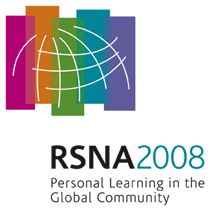
Abstract Archives of the RSNA, 2008
Jee Hyun Baek MD, Presenter: Nothing to Disclose
Jae Young Lee MD, Abstract Co-Author: Nothing to Disclose
Se Hyung Kim, Abstract Co-Author: Nothing to Disclose
Jeong-Min Lee MD, Abstract Co-Author: Nothing to Disclose
Joon Koo Han MD, Abstract Co-Author: Nothing to Disclose
Byung Ihn Choi MD, Abstract Co-Author: Nothing to Disclose
To evaluate the performance of PET/CT in the detection of hepatocellular carcinoma(HCC) and the ability of predicting histological grade using pathologic specimens as a reference
From January 2003 to March 2008, among patients who underwent PET/CT as part of the preoperative evaluation for their liver disease, 93 patients were surgically confirmed to have HCC.
Each explanted liver was cut into 5mm thickness sections and every identifiable HCC was graded based on the Edmondson-Steiner classification.
Establishment of one-to-one correspondence between HCC nodules revealed by pathologists and HCC lesions discovered on PET/CT images was attempted, and finally 177 nodules; 46 nodules with Grade I, 95 nodules with Grade II, 31 nodules with Grade III, and five nodules with Grade IV, were included in the present study.
The detection rate of lesions of each grade was calculated, and the mean value of maximum standardized uptake value (SUV) for lesions of each grade was obtained.
The detection rate of PET/CT per histological grade is as follows: 4.3% for Grade I lesions (two from 46 nodules), 18.9% for Grade II lesions (18 from 95), 35.5% for Grade III lesions (11 from 31), and 80% for Grade IV lesions (4 from 5).
Average values of maximum SUV for the lesions is as follows: 2.7 for Grade I lesions, 4.65 ± 3.74 for Grade II lesions, 4.68 ± 3.3 for Grade III lesions, and 6 ± 1.9 for Grade IV lesions.
The detection rate of PET/CT was highest for HCC nodules with Grade II according to the Edmondson-Steiner classification.
Average value of maximum SUV was highest for Grade IV lesions. Grade II and III lesions showed similar average values of maximum SUV.
In addition to the role of detecting extrahepatic metastasis in HCC patients, PET/CT can help in the detection of intrahepatic HCCs and in determining the histological grade.
Baek, J,
Lee, J,
Kim, S,
Lee, J,
Han, J,
Choi, B,
Correlation of PET/CT Findings and Histological Grade of Hepatocellular Carcinoma Using Pathologic Specimens as Reference. Radiological Society of North America 2008 Scientific Assembly and Annual Meeting, February 18 - February 20, 2008 ,Chicago IL.
http://archive.rsna.org/2008/7120424.html

